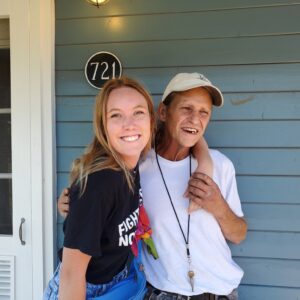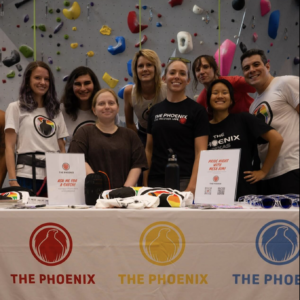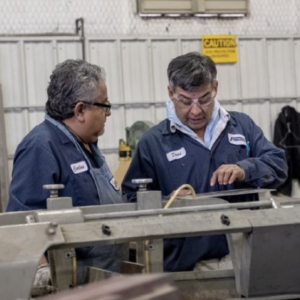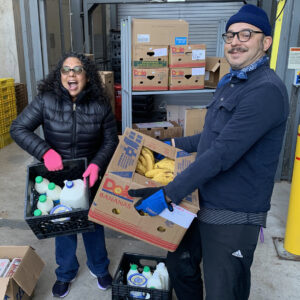What we do
We are committed to serving the poor and breaking the cycle of poverty.
Glimmer | Austin has a deep desire and renewed focus on improving the lives of those impacted by the severe challenges of living in poverty.
Glimmer | Austin invests in local nonprofits that support those struggling with poverty, homelessness, and hunger. We are committed to empowering these organizations with resources and support to create lasting change. Our focus on education and skill training helps break the cycle of poverty by providing individuals with the tools for economic independence, fostering stronger, more resilient communities. Together with our partners, we are driving positive change and creating a brighter future for all.
Caring for those who suffer from poverty
Homelessness
Over 6000 people in Austin are homeless. They sleep on the streets – under bridges and in local parks and encampments. Some will find shelter overnight, on a short-term basis or in transitional housing. Many are long term chronically homeless – others have fallen into homelessness over the past few months. And it’s not just adults. An ever-growing number of children and youth fall into homelessness when they “age out” of the foster system or children’s shelters. And many children living in Austin are homeless, living with their families in their cars or sleeping on a couch, before going to school each day. Part of the solution is to provide permanent support of housing, by funding and build housing for the formally homeless. Equally, local motels are being rehabilitated for the homeless to live in. Affordable housing is also part of the solution, in addition to transitional housing on a temporary basis
Glimmer Austin has identified a small number of key major homeless nonprofits in Austin, and has been supporting them, including Community First Village, the Other Ones Foundation at Esperanza as well as the Sunrise Navigation Center these. These organizations provide permanent supportive housing, transitional housing and diversion programs along with other vital support services, including case management and health services.

Hunger
Hunger
Shelters
Children
Children who do not have a home to live in, living amongst homeless families. Children dependent on handouts and the care of adults. Children in the foster care system and shelters. Children “aging out” of foster care and shelters into homelessness. And children who just need to play.
These children face unimaginable hardships every day. Their lives are marked by uncertainty, insecurity, and a constant struggle for basic necessities. For many, childhood is a time of joy and exploration, but for these children, it is a period overshadowed by the pressing needs for food, shelter, and stability. Despite their circumstances, they hold onto hope and resilience, yearning for the simple pleasures of play and the chance to experience a childhood free from the burdens of survival.

Addiction Recovery
Addiction Recovery
Addiction is a disease that strikes people from all walks of life in many forms. Most remain caught in the trap and devastation of addiction—many either die, go to prison, go broke, or end up homeless. Few escape addiction, and it affects all types of people, often destroying their lives and relationships. They end up losing their jobs, families, homes, and more.
In response to this pervasive issue, Glimmer Austin brought The Phoenix to Austin after it had successfully helped many people stay sober through its unique programming and activities. The Phoenix fosters a supportive, physically active community for individuals recovering from substance use disorders and those who choose to live sober. Additionally, we support Communities for Recovery, which provides a broad range of support services to help people maintain their sobriety.

Addiction Recovery
Education and Skills Training
Education and skills training break the cycle of poverty by empowering individuals with the knowledge and capabilities needed to secure stable, well-paying jobs. By providing access to resources and opportunities for growth, these programs foster economic independence, enabling individuals to support themselves and their families.
This creates a ripple effect, improving the well-being of entire communities and offering a pathway out of poverty for future generations.


